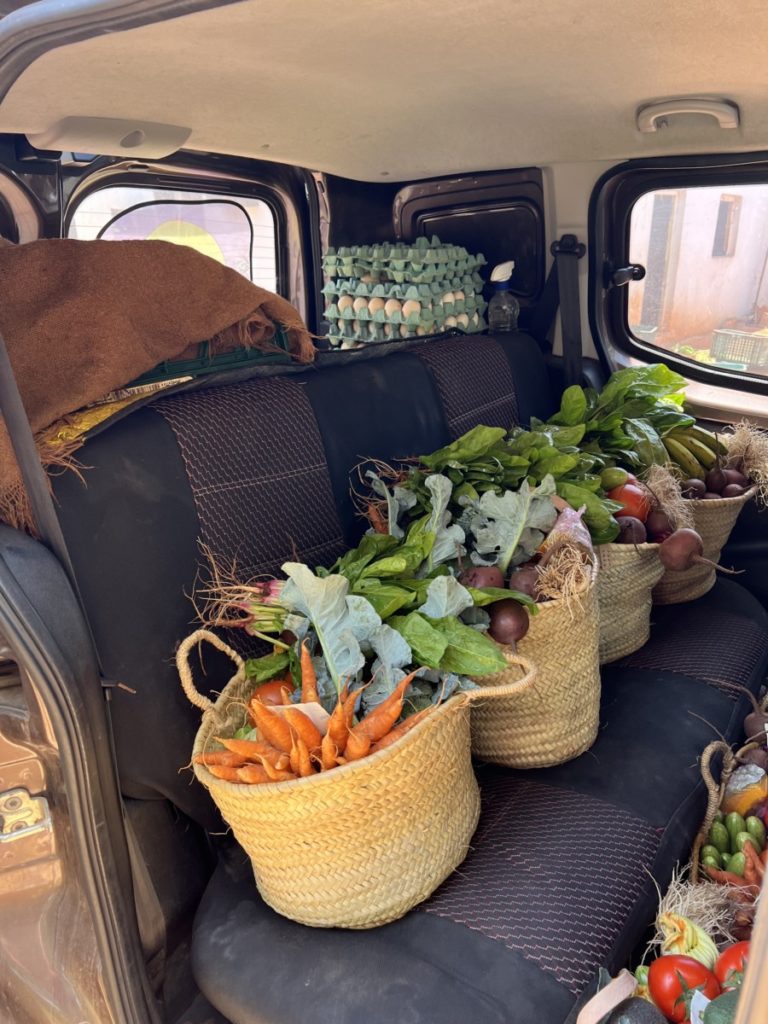We visited a lot of farms during the two weeks in Morocco, and one of the farms was run by a man who previously left his digital marketing job in the city in order to start his farm. This farm was one of my favorites because I could relate to the farmer. He started his own farm, and started a business to sell baskets of fruits and vegetables to people in urban areas. He grows whatever is in season, and he arranges the baskets according to what he and surrounding farmers have.
I learned that community is very important in Moroccan culture. Instead of going to the government for help when there is a problem such as an unknown disease with a crop, farmers call others in the surrounding area for help. In the United States, Extension is very important when needing help and asking questions; however, in Morocco, Extension is not used as much. Farmers in Morocco rely on each other in the community.
Furthermore, this farmer runs his business selling fresh food baskets with the produce from his farm, but if he does not have eggs, he will call a farmer nearby to see if they have eggs to contribute to the basket. He also gives the other farmer(s) money for their contribution to the fresh produce basket.
His business reminds me of an at-home farmers market because people, mostly from the cities, are buying fresh produce that is in season instead of going to a grocery store that might be cheaper and has out-of-season produce. People also pay for the delivery service instead of having to go to the grocery store or farmers’ market like people would usually do in their free time. Moreover, being able to see the farm, and learn about the farmer’s story was one highlight of my study abroad in Morocco.


